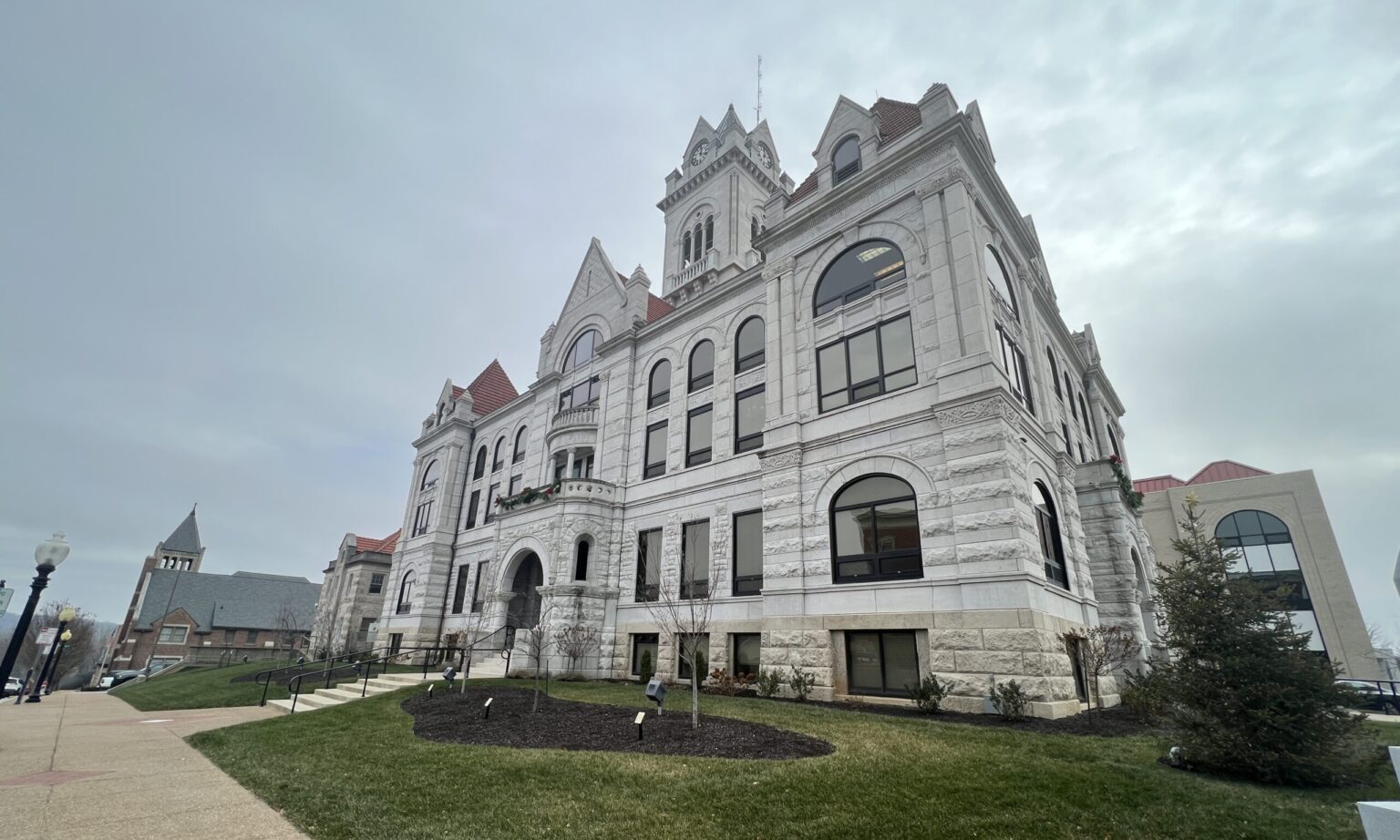12:17
News Story
GOP legislators file lawsuit challenging cost estimate of Missouri abortion-rights amendment
The litigation adopts Attorney General Andrew Bailey’s argument that legalizing abortion will cost the state billions of dollars. Auditor Scott Fitzpatrick concluded that reasoning has no merit
A pair of Republican legislators, along with an anti-abortion activist, filed a lawsuit Monday challenging the cost estimate of an initiative petition seeking to enshrine abortion rights in the Missouri constitution.
State Rep. Hannah Kelly, R-Mountain Grove, and state Sen. Mary Elizabeth Coleman, R-Arnold, are named plaintiffs in litigation along with Kathy Forck, a longtime anti-abortion advocate from New Bloomfield.
The trio is challenging Republican state Auditor Scott Fitzpatrick’s conclusion that a proposed constitutional amendment rolling back Missouri’s abortion ban would have no cost to state government if it were approved by voters next year.
Instead, plaintiffs in the case believe the cost estimate should state that legalizing abortion in Missouri could result in millions of dollars lost to local governments and billions for the state. Fitzpatrick’s estimate, the lawsuit says, is “inaccurate in a way that is both misleading to voters and obvious to and curable by the auditor.”
“The proposed amendments would allow the destruction of thousands of pre-born Missouri citizens a year, with profound consequences to Missourians that far eclipse financial concerns,” the lawsuit states. “As part of the initiative petition process, however, the state auditor is legally tasked with the grim calculation of the financial costs to Missouri from this enormous human loss.”
The auditor, the lawsuit continues, has “failed to fulfill his legal obligations to ‘assess,’ ‘estimate,’ and ‘evaluate’ with respect to the proposed initiative petitions.”
Fitzpatrick’s office could not be immediately reached for comment Monday.
Missouri auditor says AG trying to falsely inflate projected cost of abortion amendment
The cost estimate in question was completed by the auditor’s office in April.
As part of the initiative petition process, the auditor is required by law to create a fiscal note and a fiscal note summary that states “the measure’s estimated cost or savings, if any, to state or local governmental entities.”
The auditor’s office consults with state and local government agencies, and receives comments from those who support or oppose the measure. The information is evaluated, and the office prepares a fiscal note and a summary to appear on the ballot that is no more than 50 words.
The summary cannot create prejudice for or against the proposal.
The fiscal note and summary then head to the attorney general, who is tasked with approving the legal content and form of the summary. After the attorney general certifies the auditor’s work, which is typically a formality, it goes to the secretary of state.
Attorney General Andrew Bailey, a Republican, refused to sign off on Fitzpatrick’s fiscal note, arguing it needed to be much larger.
Fitzpatrick’s fiscal summary cited several state agencies in concluding Missouri would face “no costs or savings” as a result of the proposed constitutional amendment. It does say one local government entity — Greene County — estimates losing at least $51,000 in reduced tax revenues, and that opponents of the proposal contend it could lead to significant loss in state revenue.
Bailey demanded the auditor’s office extrapolate the Greene County estimate statewide, which Fitzpatrick said would be inaccurate and inappropriate.
The attorney general also demanded the cost estimate declare that legalizing abortion could put federal Medicaid money at risk, costing the state at least $12 billion annually, and should reflect possible loss of tax revenue as “aborting unborn Missourians will have a deleterious impact on the future tax base.”
Fitzpatrick noted that while he vehemently opposes abortion, the figures Bailey was citing were not based in reality and run counter to the conclusions of the Department of Social Services, which oversees the state’s Medicaid program, and the Department of Revenue
The Missouri Supreme Court ruled last month that Bailey had no authority to block Fitzpatrick’s fiscal note, ordering him to sign off so the initiative petition process could continue.
Monday’s lawsuit picks up Bailey’s arguments, asking a Cole County judge to order Fitzpatrick to revise his work to reflect higher potential costs for legalized abortion.
By including Greene County in his cost estimate, the lawsuit states, Fitzpatrick acknowledges the potential costs to local governments. Voters deserve to know the statewide cost.
“In short,” the lawsuit says, “either all counties in Missouri will lose tax revenues as a result of freely available abortions or none will.”
Though state agencies saw no risk to state Medicaid funding, the lawsuit argues Fitzpatrick should have given more weight to cost estimates submitted by Missouri Right to Life and Campaign Life Missouri that concluded legalized abortion could cost the state billions in federal health care money.
Fitzpatrick should also have warned voters of “the certain and significant financial losses to Missouri that will attend the destruction of large numbers of future Missouri citizens, workers, creators, taxpayers and heads of families.”
In a statement released after filing the lawsuit, Kelly, Coleman and Forck said the legal challenge is “not about individual officeholders, but about the omission of the true fiscal costs to individual Missourians with measures that could imperil their financial futures, and cost the state billions of dollars in health care funding.”
As the legal challenge to the fiscal note gets underway, a Sept. 11 trial date has been set in Cole County court over a lawsuit challenging Secretary of State Jay Ashcroft’s ballot summary.
Proponents will need to collect roughly 170,000 signatures to place one of the versions of the abortion-rights initiative petition on the 2024 ballot.
The proposals would amend the constitution to declare that the “government shall not infringe upon a person’s fundamental right to reproductive freedom.”
That would include “prenatal care, childbirth, postpartum care, birth control, abortion care, miscarriage care and respectful birthing conditions.” Penalties for both patients seeking reproductive-related care and medical providers would be outlawed.
Our stories may be republished online or in print under Creative Commons license CC BY-NC-ND 4.0. We ask that you edit only for style or to shorten, provide proper attribution and link to our website. AP and Getty images may not be republished. Please see our republishing guidelines for use of any other photos and graphics.





